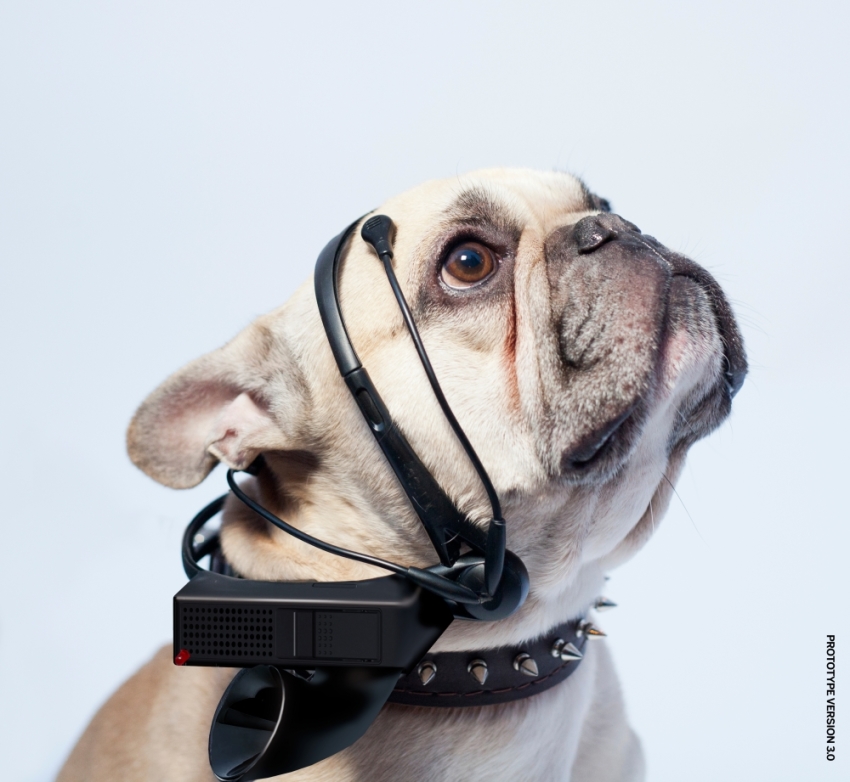No More Woof Device Promises to Start Translating Your Dog's Thoughts Into Human Language in Four Months; Professors Say It's Bunk

The Nordic Society for Invention and Discovery claims that by April 2014 a device currently being developed in the group's lab called No More Woof will be able to translate your dog's thoughts into human language. But one psychiatry professor has dismissed the claim as bunk.
The group declares on a website promoting the device that No More Woof is: "The first device to translate animal thoughts into human language."
It then gets into a little bit more detail about this groundbreaking technology.
"No More Woof is a small gadget that uses the latest technology in micro computing and EEG to analyze animal thought patterns and spell them out in human language using a loudspeaker," notes the description on the website for the product.
"By pre-ordering your own set of No More Woof you are not only buying the first edition of a cool product, you are also supporting further research to finally break barriers between animals and humans," the description continues before declaring, "Join the movement."
A YouTube video promoting the technology was also posted online about two weeks ago and it has been viewed more than half a million times already.
Bruce Luber, associate professor of psychiatry and behavioral sciences at Duke University, however, doesn't buy the pitch.
"What I saw in their video can't work," said Luber, who specializes in brain stimulation and neurophysiology, in an interview with Popular Science. "You can't detect hunger, at least as we know it right now, with EEG."
He also explained that the headset approach was too simple and he doesn't think a device like that can deliver what it promises.
"We go through a whole process--with a monkey, move all the hair out of the way just to make some kind of contact through the head. It doesn't work with fur," said Luber.
Rebecca Packer, associate professor of neurology and neurosurgery at Colorado State University's College of Veterinary Medicine and Biomedical Sciences, agrees. "I'll just say I've never been able to accomplish that," she said.



























